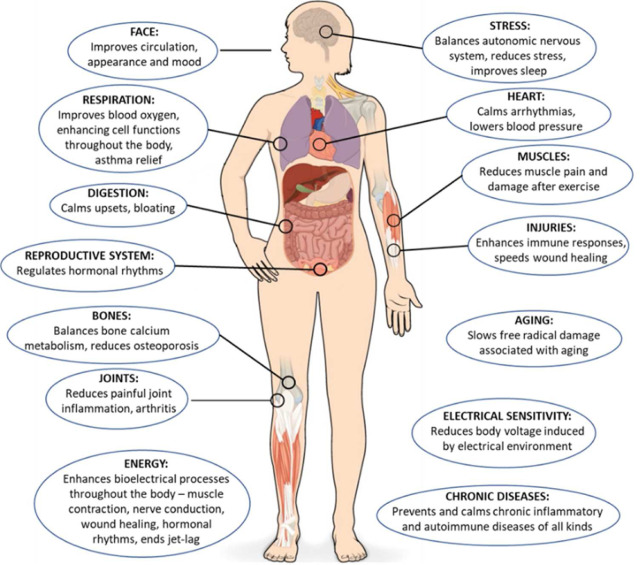Welcome to part 9 of the ODX Stress Biomarkers Series. In this post, the ODX Research team briefly addresses some of the stress management techniques that can support the parasympathetic nervous systema and help promote the rest and digest response.
The ODX Stress Biomarkers Series
- Stress Part 1: A Quick Overview
- Stress Part 2: How Do We Get Stressed Out?
- Stress Part 3: The Physiology of Stress
- Stress Part 4: Hormonal Control of the Stress Response
- Stress Part 5: Identifying Stress
- Stress Part 6: Disorders Associated with Stress
- Stress Part 7: Biomarkers of Stress Overview
- Stress Part 8: Biomarkers of Stress, Individual Markers
- Stress Part 9: Addressing Stress: Can We Treat It or Beat It?
- Stress Part 10: Nutrition and Stress
- Stress Part 11: Optimal Takeaways
Stress - How to Treat It
How can we get stress out after being stressed out? The first step is to identify primary stressors as well as underlying causes and contributors to stress. No matter the source of stress, an individual’s response to or management of that stress will determine its pathogenicity. Coping with stress requires conscious decisions and actions, including optimal lifestyle and nutrition choices.
Stress Management Techniques[i] [ii]
- Deep breathing
- Exercise
- Healthy diet
- Healthy sleep routine
- Meditation
- Mindfulness
- Music therapy
- Progressive relaxation
- Yoga
- Social support
- Stay grounded
- Time management
Quick Tips for Breathing Deeply
Diaphragmatic breathing can activate the parasympathetic system and help reverse the stress response.
With one hand on the abdomen and one hand on the chest, breathe in deeply and slowly through the nostrils for at least 4 counts, pause for 4 counts, then exhale completely through the mouth for 4 counts or more. If able, hold the breath out for a count of 4 as well, and then start again.
Lying on the ground or floor with knees bent may be helpful, especially for maintaining focus on the breath.
Do this a few times per day to invoke the “rest and digest” relaxation response.
Stay Grounded
It’s not just a saying— staying grounded can help reduce inflammation, improve health, and optimize stress management. The practical technique of grounding, or ”Earthing,“ involves direct contact with the ground and can be as simple as standing or walking barefoot outside.[iii] Grounding not only connects us with our natural surroundings but reduces the swelling, pain, and loss of function caused by inflammation; facilitates wound healing; and even reduces elevated white blood cells. Researchers suggest it is the free flow of electrons into the body that provides an antioxidant effect, protecting cells and organs from oxidative stress. The practice also appears to improve sleep and increase tolerance to stress by shifting the nervous system to parasympathetic control. Subjects report a reduction in irritability, anxiety, and depression when sleeping grounded for eight weeks.[iv]
Potential Systemic Benefits of Earthing

Source: Menigoz, Wendy et al. “Integrative and lifestyle medicine strategies should include Earthing (grounding): Review of research evidence and clinical observations.” Explore (New York, N.Y.) vol. 16,3 (2020): 152-160. doi:10.1016/j.explore.2019.10.005 This is an open access article under the CC BY-NC-ND license.
As you can see, stress management is not necessarily passive, it takes conscious, deliberate action. However, hopefully, some of these techniques such as deep breathing and grounding, can become second nature and become integrated into daily life.
References
[i] Murray, Michael T., and Joseph Pizzorno. The encyclopedia of natural medicine third edition. Simon and Schuster, 2012.
[ii] Ozbay, Fatih et al. “Social support and resilience to stress: from neurobiology to clinical practice.” Psychiatry (Edgmont (Pa. : Township)) vol. 4,5 (2007): 35-40.
[iii] Menigoz, Wendy et al. “Integrative and lifestyle medicine strategies should include Earthing (grounding): Review of research evidence and clinical observations.” Explore (New York, N.Y.) vol. 16,3 (2020): 152-160. doi:10.1016/j.explore.2019.10.005
[iv] Oschman, James L et al. “The effects of grounding (earthing) on inflammation, the immune response, wound healing, and prevention and treatment of chronic inflammatory and autoimmune diseases.” Journal of inflammation research vol. 8 83-96. 24 Mar. 2015, doi:10.2147/JIR.S69656






